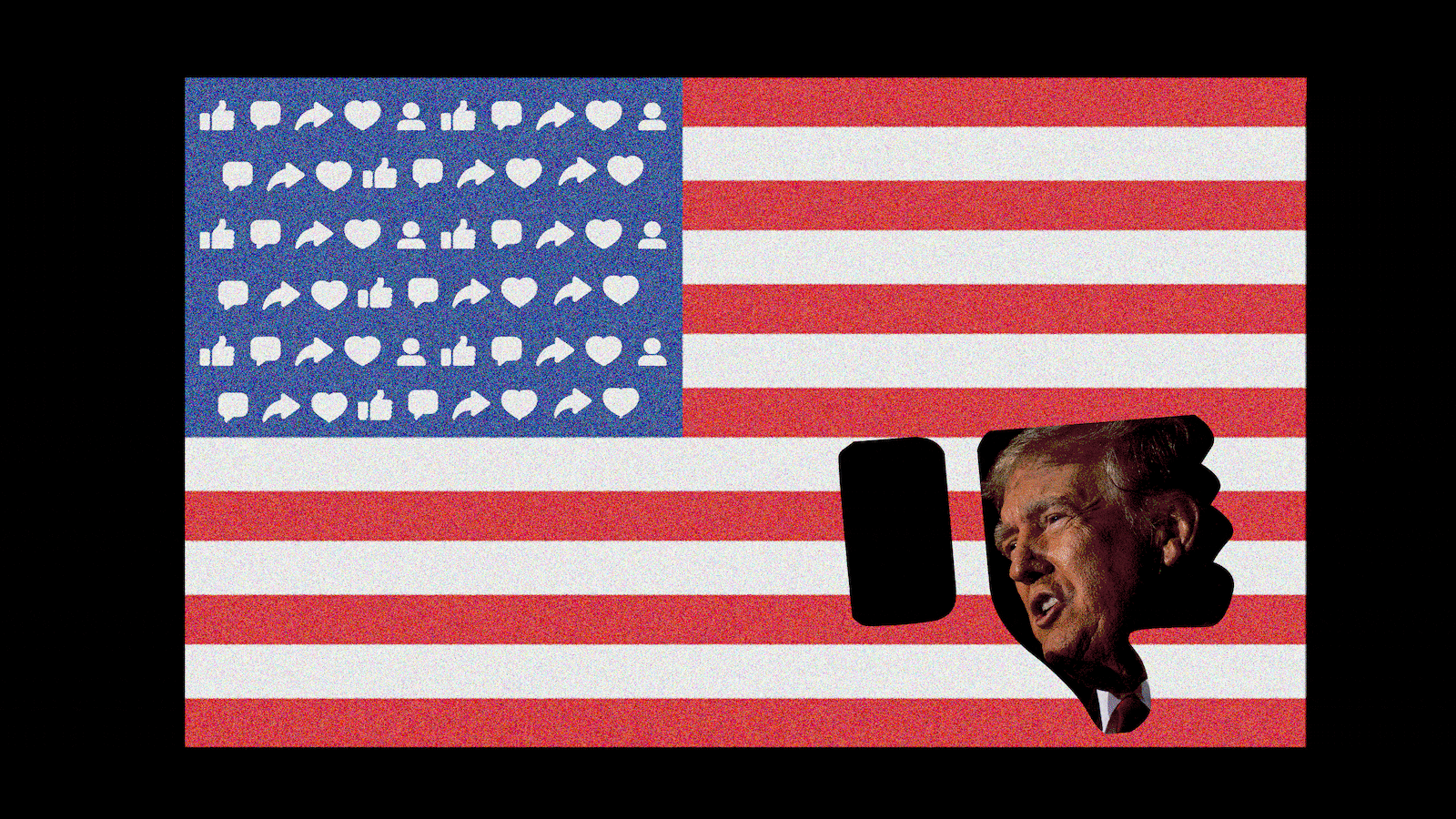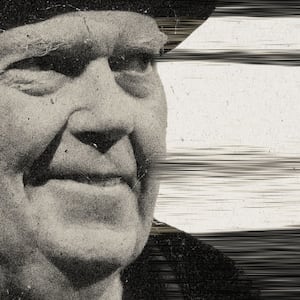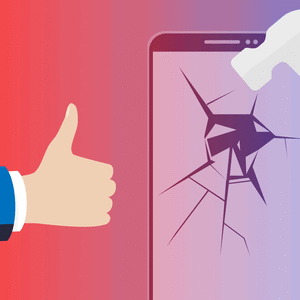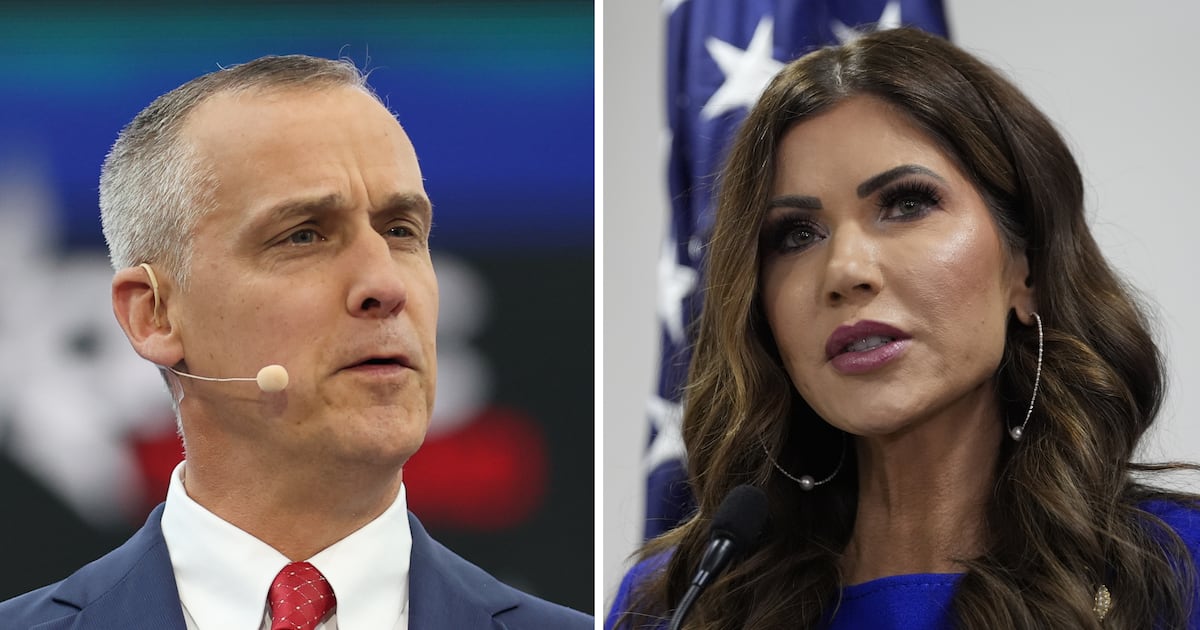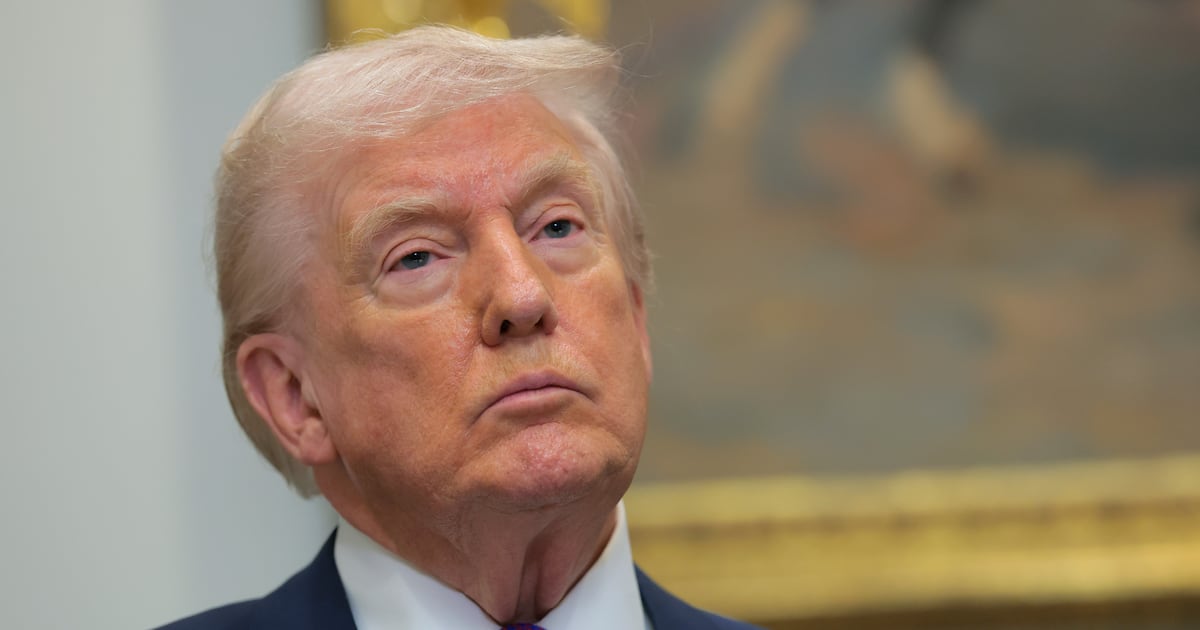On the eve of the midterm elections, 60 Minutes broadcast a segment on China’s influence over TikTok. In it, the former Google engineer turned “tech-ethicist” Tristan Harris posited that China was serving its youth wholesome “digital spinach” via TikTok while giving America’s youth “digital opium.”
In Harris’ mind, Chinese communists were perpetuating what domestic capitalists had started, something his think tank, the Center for Humane Technology, insists is turning kids into depressed, stupid right-wing extremists—a narrative pushed by documentaries like The Social Dilemma.
Just days later, America’s young voters—who live on social media—helped destroy Republicans’ hopes of controlling Congress, and dealt what could be a death blow to Trumpism.
How can this be? We were told that social media is destroying democracy, and that it’s all its fault that Donald Trump was elected in the first place six years ago.
The hysteria of Trump-era social media panic is suddenly revealing itself as a two-dimensional paranoid coping mechanism for the losing team. TikTok is the new Cambridge Analytica. China the new Russia. Xi the new Putin. Biden the new Manchurian candidate. (That’s not to say Russian and Chinese election meddling is imagined or insignificant—it’s to say things are more complicated than that, democracy is more resilient and technology more neutral.)
It was during the Trump years that 25 million kids between the ages of 12 and 17 followed the chaos of his presidency through the only medium that was fast enough to keep up: social media. The 2020 election saw some of this demographic help secure a Biden victory. Those that couldn’t vote yet did things like disrupt Trump rallies, coordinating via social media. By the 2022 midterm elections, all 25 million were old enough to vote, and vote they did.
All the gerrymandering, voter suppression, and untold billions of campaign spending was no match for an angry and informed youth—that had mainlined the rise of a corrupt administration unfiltered via the internet.
This wasn’t the first time a new, online generation made history in progressive politics. Barack Obama benefitted from a similar phenomenon in 2008, with a surge of young voters (66 percent) who’d come of age online, helping to sweep him to a stunning upset victory over Hillary Clinton in the Democratic primary, and ultimately all the way to the White House. Social media was given large credit for that historic win, as well as Obama’s 2012 re-election—which some hailed as the first “big data” election, a positive connotation at the time.
The now-forbidden idea that social media could be a constructive and progressive force for good was further corroborated in the pre-Trump years by the galvanization of movements like the Arab Spring, Occupy Wall Street, and Black Lives Matter.
Subsequently, a narrative solidified about Silicon Valley: that the benevolent nerds behind these platforms were driving technological progress which, in turn, was driving social progress at home and abroad. The resulting halo effect saw its leaders appear at events with Obama and become deeply embedded with his administration. As Obama’s second term came to an end, he even contemplated becoming a tech venture capitalist in his post-presidential life—an unthinkable prospect now.
In the 2016 election Hillary Clinton didn’t benefit from the same tailwind of frustration that Obama enjoyed after the deeply unpopular George W. Bush administration limped to a close. The youthful idealistic ire that benefited her predecessor was instead captured by Sen. Bernie Sanders, whose supporters saw Hillary as a continuation of Obama’s unsatisfying centrist compromises. The disbelief that her opponent could ever win instilled complacency in voters. Historically, voters have gone for change after eight years of one party’s rule, but this was Trump. It couldn’t happen. And when it did happen, people wanted answers. What happened?
Reports of Russian election meddling on social media in the run up to the election—coupled with tone-deaf denials by Mark Zuckerberg, and then the Cambridge Analytica scandal—saw Silicon Valley’s halo quickly turn to horns. A techlash began, and media sentiment changed quickly.
Social media was now a threat to democracy, to progressivism and the free world. The pollyannaish techno-utopian ideas of a more open and connected global village were now considered Silicon Valley propaganda. An accusation that was once contrarian enough for right-wing tech mogul Peter Thiel to throw at then-Google Chairman Eric Schmidt, suddenly became the “current thing.”
Regardless, social media continued to be a powerful tool for social justice and Democratic organizing. It’s where the #TheResistance germinated and grew, starting with the Women’s March. It’s how the #MeToo movement galvanized. And it remained the weapon of choice for youthful dissidents suffering under oppressive dictatorships.
Organizations like Sleeping Giants used social media to take a hammer to the advertising revenues of Fox News and Breitbart. Rep. Alexandria Ocasio-Cortez became a breakout Democratic star. The re-emergence of Black Lives Matter in 2020 amid the George Floyd protests ignited a reckoning over racial discrimination. When the statue of a slave trader was toppled in England, the moment was quickly went viral in the U.S.—inspiring copycat topplings in Southern states. This was the environment in which Gen Z came of age.
Social media continued to drive the same kind of progressive uprisings it had in a pre-Trump world. But in a post-Trump world, progressives and the mainstream media continued to treat social media as nothing but a net negative.
The right, on the other hand, saw this progressive groundswell as an existential threat. Trump supporters saw a conspiracy of algorithmic tweaking and censorship by “big woke tech”—the kind of thing “Uncle Ted” (a.k.a. the Unabomber) warned about in his manifesto, which later drew praise from Republican candidates like Blake Masters.
Eventually this led to numerous bipartisan bills aimed at reining in social media—many of which were unconstitutional. A number of Republicans called for TikTok to be banned, including Trump. GOP lawmakers also pushed for social media time and age limits; the latter won the backing of progressive public intellectuals like Jonathan Haidt.
When Fox News contributor Lisa Boothe reacted to the Republican midterm defeats with another call to ban TikTok, she seemed to say the quiet part out loud: “[It] would be not only good for national security, but also helpful politically. Too much brainwashing on there…”
The recent electoral victories have made the pollyannaish naïveté of the Obama years suddenly seem less naïve. The power of social media to “bend the arc of history towards justice” has become clear at home and abroad once again, as Iranian and American women fight for their rights.
Republicans know social media is a double-edged sword. It’s time for progressives to remember that too—and learn how to wield it.

